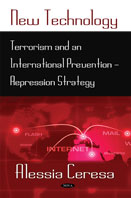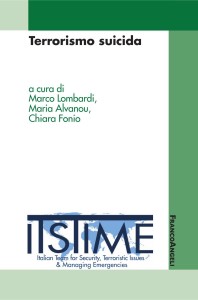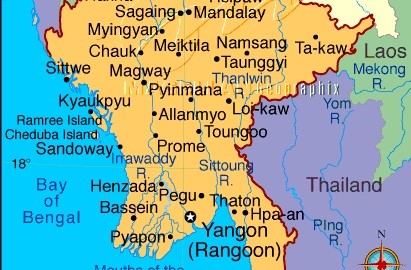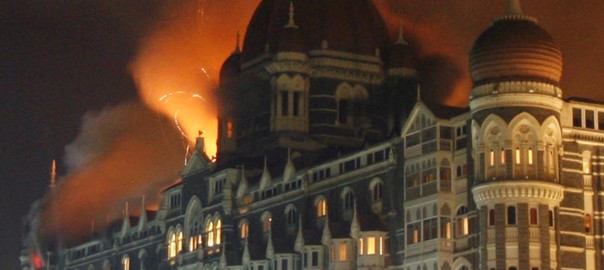Italy and Greece are neighbour countries with strong cultural ties for thousands of years. It seems like the bonds between Italy and Greece may be expanding also in terrorism. Recently the terror campaign that is troubling Greece struck the heart of the State. A bomb that arrived to the building of the Ministry of Citizen’s Protection (Former Ministry of Public Order) addressed personally to the minister himself, exploded killing a high rank Police Officer. The victim was going through the minister’s mail for control[1]. The responsibility for this attack has been claimed by a new group, though the authorities express doubts about the originality of this claim[2].
Category Archives: Uncategorized
Times Square, NYC: attentato fallito – by Marco Lombardi
Il 30 dicembre 2009 a New York vicino a Times Square c’era già stato un allarme un falso allarme bomba per “un furgone sospetto senza targa e con i vetri coperti da teli, parcheggiato a Times Square tra la 42esima strada e Broadway, ha gettato per qualche ora la città nel caos ma all’interno del veicolo sono state trovati solo alcuni cartelloni di agenzie di sicurezza inesistenti.
Domestic terrorism in Greece: comments on the recent police antiterrorism operation – by Maria Alvanou
On April 11, the Greek Police after a long period of intense research proceeded on the arrests of 6 individuals, connecting them with the “Revolutionary Fight”, the most dangerous and active – along with “Sechta” – terrorist organisation in the country. Day after day new evidence comes up and discoveries about weaponry, explosives and hiding places. The criminal charges that the suspects face are very serious, yet it is too soon to evaluate properly the whole police operation. While the Greek Police has surely proved to be productive and alert, the juridical research and the court hearing process will decide upon the guilt or not of the suspect and their connection to the “Revolutionary Fight”, or any other terrorist group. Still, there are very interesting points that one can comment at this present stage.
Emergency in arresto – by Marco Lombardi
La faccenda dei tre medici italiani di Emergency arrestati dopo la perquisizione all’ospedale di Lashkar Gah continua, giustamente, a far discutere: ne sono coinvolti tre cittadini italiani. Noi dell’Università Cattolica, che in Afghanistan ci siamo andati con una certa frequenza negli ultimi mesi per le attività di cooperazione con il Ministero della Difesa, abbiamo potuto sperimentare qualche relazione diretta con la complessa realtà di quel Paese, alla quale il caso in questione bene si uniforma.
Itamar case: beyond terrorism – by Maria Alvanou
The debate “is it freedom-fighting or is it terrorism?” is well standing, even after 9/11, the London and Madrid bombings. There are still those who try to distinguish whether a violent activity against civilians can be considered legitimate as means of struggle or it is unacceptable terror in order to coerce governments to give in to demands. And of course the actors behind even of the crudest violence deny the words “terrorism” and “terrorists” that express pejorative notions and label them as the “bad guys”.
5 agosto 2009 – La cooperazione tra le università italiane e quelle afghane potrebbe avviarsi a breve: con questo scopo ha visitato in questi giorni l’Afghanistan Marco Lombardi, docente di Lettere e Filosofia dell’Università cattolica del Sacro Cuore, su richiesta del ministero dell’Educazione di Kabul. Supportato dal Comando della missione Nato ‘Isaf’, il professor Lombardi ha effettuato la sua visita con l’esplicito intento di realizzare progetti di sviluppo in ambito educativo, patrocinati dall’Università italiana, che in tempi brevi potrebbero portare alla prima cooperazione interuniversitaria tra i due paesi. In particolare, si studia la fattibilità di corsi di formazione per giovani ricercatori afghani in Italia, e a Kabul con il contributo di nostri docenti, nella fattispecie per quanto riguarda l’Università di Herat. Nel suo giro consultivo Lombardi, tra gli altri, ha incontrato alcune personalità locali, tra cui il ministro dell’Educazione Wardak e il vice ministro Baburi . L’Ambasciata italiana lo ha quindi ringraziato per la partecipazione, che “ha dato ulteriore prestigio alla presenza italiana in Afghanistan”. Lo rende noto l’Ansa.
Il ciclone Nargis: considerazioni un anno dopo – by Barbara Lucini
E’ passato più di un anno da quel 2 maggio quando il Myanmar[1], ex Birmania, e precisamente l’area geografica dell’Irrawaddy viene percorsa e percossa dal ciclone Nargis classificato di categoria 3. Il vento è soffiato ad una velocità di 200 km/h distruggendo al suo passaggio molte città e villaggi della zona, in particolare la città di Bogalay dove sono stati rasi al suolo quasi tutti gli edifici presenti, ed allagando Yangon con l’ondata di piena che ha preso vita.
Un nuovo libro di ITSTIME: New Technology: Terrorism and an International Prevention-Repression Strategy
From the second half of the the years ’90s, we are assisting to a progressive internationalization of ‘Terror(ism)’, through the diffusion on a large scale fo the New Technology as an essential component of our lives. National and International Terriorism, in fact, has found a great ally in technological instruments and, in particular, Internet, since they guarantee a high level of anonymity and they respresent new channels of communication, essential to keep internal contacts among the members of a single terrorist organization and they are fundamental instruments also to develop an international network of connectio ns both for idelogogical support, as well as for massive recruitment campaign. New technology has also developed new and more aggresive “technological weapons” (mass-destruction armaments and CBRNE weapons), used by the criminal terrorist organizations for creating new and alternative forms of blackmailing the International Institutions and the ‘Civil Society’. These armaments are also considered a new source of raising funds for financing terrorism, because of the illegal trade of toxic and nuclear material. The time is mature for clarifying the concrete subversive capability of the several Terrorist movements that at a National-Intentional level represents a menace to the ‘global security’, in the light also of the fact that New Technology has progressively contributed in creating a world without spatial and temporal frontiers, through Internet and the technological instruments. This research also has the aim to develop a new program of prevention/repression strategy against Terrorism in any form and idelogical identity, to shorten the distance between the Terrorist phenomenon and the capability of the International Society to prevent and control this ‘pathological’ problem, using the same technological instruments exploited by Terrorism: from an ‘asymmetric war’ to a more and more ‘symmetrical war’, where the battle-field is the the Informational Technology.
ns both for idelogogical support, as well as for massive recruitment campaign. New technology has also developed new and more aggresive “technological weapons” (mass-destruction armaments and CBRNE weapons), used by the criminal terrorist organizations for creating new and alternative forms of blackmailing the International Institutions and the ‘Civil Society’. These armaments are also considered a new source of raising funds for financing terrorism, because of the illegal trade of toxic and nuclear material. The time is mature for clarifying the concrete subversive capability of the several Terrorist movements that at a National-Intentional level represents a menace to the ‘global security’, in the light also of the fact that New Technology has progressively contributed in creating a world without spatial and temporal frontiers, through Internet and the technological instruments. This research also has the aim to develop a new program of prevention/repression strategy against Terrorism in any form and idelogical identity, to shorten the distance between the Terrorist phenomenon and the capability of the International Society to prevent and control this ‘pathological’ problem, using the same technological instruments exploited by Terrorism: from an ‘asymmetric war’ to a more and more ‘symmetrical war’, where the battle-field is the the Informational Technology.
Il nuovo volume della serie ITSTIME: Terrorismo suicida
 Finora non sono state le sofisticate armi di distruzione di massa a diffondere la paura e il panico dell’attentato terroristico, bensì l’organizzazione precisa, le semplici tattiche e l’effetto a sorpresa causati da persone intenzionate a rinunciare alla propria vita pur di uccidere il loro nemico: oggi il male del terrorismo suicida colpisce un numero consistente di paesi.
Finora non sono state le sofisticate armi di distruzione di massa a diffondere la paura e il panico dell’attentato terroristico, bensì l’organizzazione precisa, le semplici tattiche e l’effetto a sorpresa causati da persone intenzionate a rinunciare alla propria vita pur di uccidere il loro nemico: oggi il male del terrorismo suicida colpisce un numero consistente di paesi.
Questo volume si propone di approfondire alcuni aspetti delle missioni suicide dal punto di vista operativo, storico, legislativo e strategico al fine di chiarire il fenomeno attraverso molteplici approcci, nello spirito della ricerca applicata di ITSTIME, per contribuire a formulare una risposta alla domanda che in tanti ci si pone: “È possibile fermare chi per uccidere è disposto a uccidersi?”
Sorveglianza, controllo e privacy
Inizia oggi il primo appuntamento a scadenza mensile dedicato ai temi della sorveglianza, del controllo e della privacy.
Leggi le note a margine degli incontri: VideoSorveglianza
December 2008 – Riots in Greece: Law, Order and the Police, by Maria Alvanou says that the riots that followed the recent police shooting of a Greek teenager in a troubled district of Athens highlight major problems facing Greek police forces and the need for tougher legislation and implementation of laws against police brutality and abuses. On December 6, a 15 year-old boy named Alexandros Grigoropoulos was shot dead by a special guard of the police force patrolling with his colleague in the Exarheia district of Athens. This tragic event led to student and youth protests that escalated into rioting and looting by anarchists in almost all cities of Greece. More then a week later unrest continues, with Athens looking like a war zone. There seems to be no end to violence and there are serious political and social issues involved…..
Mumbai attacks: operational strategy and significance – by Maria Alvanou
The attacks in Mumbai were named by many the 9/11 of India. Not without reason, since it was a mega-hit that will constitute a landmark in the history of terrorism, because of the horror it caused. India certainly constitutes the target of terrorist activities for years now and for this reason the authorities of the country collaborate for their counterterrorism strategy and training with the Israelis (considered specialists in this sector). However, the simultaneous attacks in hotels and the Jewish religious centre, the kidnapping and killing in cold blood of tourists left the world speechless watching this new show of terror in the international scene.



